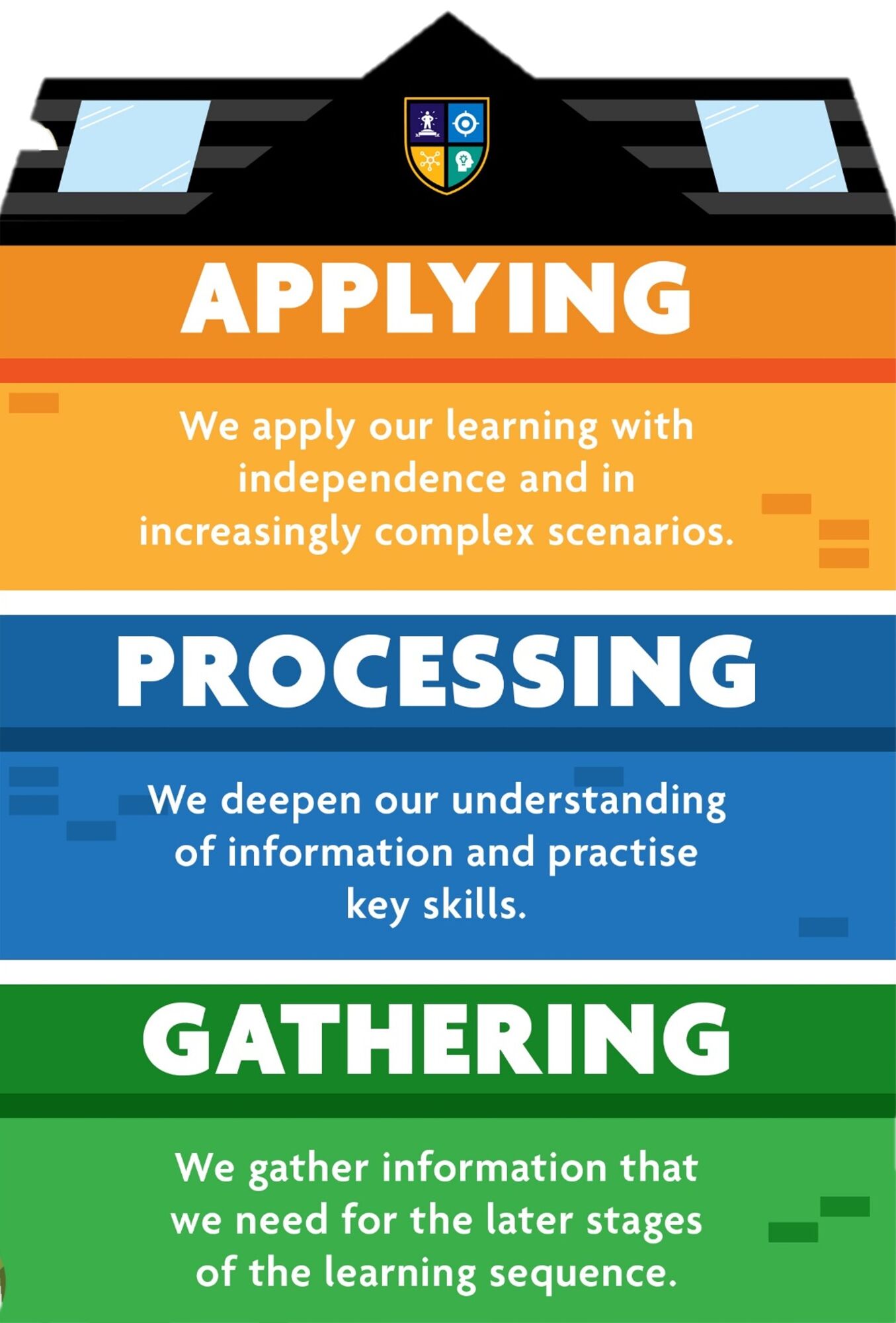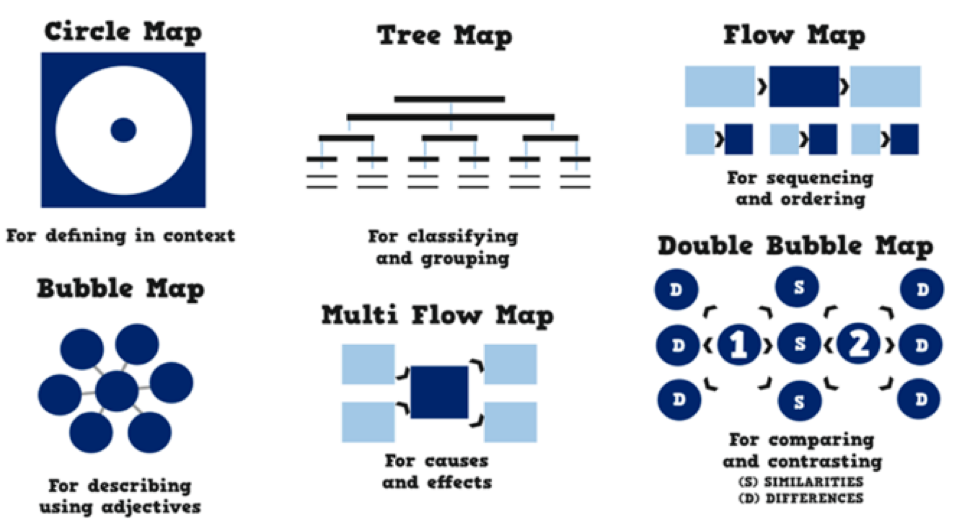- Home
- In the Classroom
- Teaching and Learning
Teaching and Learning
At SCC, high-quality teaching and learning is at the heart of everything we do. We think carefully about every aspect of our practice, and our teaching and learning approach brings together key insights from educational research and cognitive science to support teachers in their planning and delivery of highly effective sequences of learning. We have identified four core principles that underpin all aspects of teaching and learning, and which help us to plan with clarity and purpose, deliver lessons that stick, and support every student to make real progress.
We build CONFIDENCE
It is important that we address issues of confidence and low aspirations before trying to teach content. Evidence shows that poor motivation is a response to repeated failure and so it is crucial that we support all students to experience success in order to build confidence and, consequently, increase motivation for learning.
We focus ATTENTION
‘Thinking’ takes place in working memory and occurs when we combine information in new ways. This combining of information is essential for learning and, as such, it is crucial that we support all students to focus their attention on what we need them to be thinking hard about during lessons. We recognise the limitations of working memory and must be mindful of not overwhelming this by introducing too much information at once or increasing the complexity of a task too quickly.
We make CONNECTIONS
For students to learn something, they must be able to connect new ideas (things they don’t know) with old ideas (things they do know). This allows them to make meaning and consequently build strong, interconnected units of knowledge (schema).
We check UNDERSTANDING
The meaning that students make from what we say is a combination of what we say (or at least the parts they attend to) and the relevant knowledge they already have. Each student will use at least slightly different knowledge to understand what we say, and this means the resultant meaning made by each student will be at least slightly different. Consequently, it is imperative that we regularly check for understanding. This allows us to take students from where they are, not from where we imagine or would like them to be.
The Three Storey Intellect
Three Storey Intellect
We use the Three Storey Intellect to help plan, structure, and communicate learning sequences. The Three Storey Intellect is a framework that describes three stages (storeys) of the learning process: gathering information, processing information, and applying information, and it is based on an understanding that all learning sequences are a combination of these three key elements:
•Gathering - We gather information that we need for the later stages of the learning sequence.
•Processing - We deepen our understanding of information and practise key skills.
•Applying - We apply our learning with independence and in increasingly complex scenarios.
This model provides a consistent language for both teachers and students, supporting clarity in every subject. It helps ensure that lessons build logically, from the secure recall of knowledge to the confident application of understanding, and that all learners can see how their thinking is developing over time.

1st Storey - Gathering. We think carefully to ensure absolute clarity in the vital content, knowledge and skills that we need to ‘gather’ with our students. We ensure that firm foundations for future learning are established, but also ‘gathered’ efficiently, to maximise learning time for other elements of the learning process.
2nd Storey - Processing. Students are given opportunities to explore the content that has been gathered or to refine skills that have been introduced to them. Teachers use their expertise to identify the precise level of ‘scaffolding’ that is appropriate to enable students to secure their understanding at this stage of the learning process.
3rd Storey - Applying. Regular opportunities are provided for students to ‘apply’ their learning in a range of familiar and unfamiliar contexts. This enables students to retain their learning in the longer term. Crucially, students are given opportunities to make mistakes but are then encouraged to reflect upon these and learn from them.
Thinking Maps
Thinking Maps are a series of visual organisers created by the American academic David Hyerle. Each Map has a specific function depending on the thinking taking place and we use these across the school to support all students organise their thinking.

Circle Map – Defining in Context. Putting down on the page the information that you already know (or think you know) about the subject.
Bubble Map – Describing with Adjectives. Identifying the adjectives that best describe the different aspects of the subject you are thinking about.
Double Bubble Map – Comparing and Contrasting. Considering the similarities and differences between, for example, two people, places or events that you wish to compare.
Flow Map – Sequencing and Ordering. Organising a series of ideas into the right or best sequence and understanding how they link together.
Multi-Flow Map – Causes and Effects. Identifying the different factors that might cause something to happen and the range of possible effects of this.
Tree Map – Classifying and Grouping. Organising a range of people, places or events, for example, into different groups depending on the way that they relate to one another.
Literacy – The Reciprocal Reading Sequence
We recognise that having excellent literacy skills is crucial to the success of our students both at school and for the remainder of their lives. We use the Reciprocal Reading sequence to provide students with a strategy that enables them to independently extract meaning from challenging texts.
All teachers understand the Reciprocal Reading sequence and look to use it whenever appropriate. In addition, dedicated Reciprocal Reading lessons take place regularly across a number of subject areas, so that all students are being given regular opportunities to develop this skill.
The stages of the Reciprocal Reading sequence are:
- Recall (Gathering): students are asked to recall what they already know (or think they know) about the topic of the text to be read
- Predict (Applying): students are encouraged to predict how they feel the text will develop after reading the opening line - activating their thinking from the outset
- Read (Gathering): students take the time to read a short section of the text
- Clarify (Processing): time is taken to clarify the precise meaning of any unfamiliar language, or any language that students may feel is familiar, but about which there may be misconceptions
- Questioning (Processing): students are encouraged to pose their own questions based on the section of text read
- Summarise (Processing): students are asked to provide a summary of the key points of the section of text that has been read
In many schools, reading is seen as a simple ‘gathering’ activity. Through the Reciprocal Reading sequence, reading becomes a ‘processing’ and ‘applying’ activity, increasing the depth of learning that is achieved.
Debating Ethos
There are many elements of our Teaching and Learning approach that support students to develop excellent oracy skills and we want our students to have the confidence and skills to present and discuss issues with people from all backgrounds. That’s why students have regular opportunities to engage with and debate a wide range of topics.
Whilst all teachers and subject areas are constantly looking for opportunities to support our debating ethos, specific debating lessons are part of the curriculum in a number of subject areas including English, Science, Geography and History. Through this approach, we can be confident that all students have regular opportunities to develop these vital skills.
Digital Technology
Technology is an integral part of teaching and learning at SCC. All staff and students have access to their own iPad, creating powerful opportunities to enhance learning both in school and at home. This enables us to share lesson materials with students, supporting them to revisit prior learning whenever they need to, and supports a range of opportunities to check the understanding of all students carefully.
Teachers think carefully about how digital tools can be used to support strong teaching and make informed decisions about when and how to use this to strengthen explanations, improve modelling, enhance practice and feedback, and increase accessibility for all students.
Skills Builder
In September 2024, we introduced the ‘Skills Builder’ approach to support our students in developing vital cross-curricular skills. ‘Skills Builder’ identifies 8 essential skills that we all need to develop if we are to achieve success. Each skill is broken down into 15 steps that move from ‘Getting Started’ in the skill to being able to demonstrate ‘Mastery’. At times, it is easy to allow the develop of skills to be left to chance, but we know that these skills are so important to allowing our students to reach their full potential, that we need a clear structure to make sure that the skills are a key focus at all times.
Whilst each of the 8 ‘Skills Builder’ skills are extremely important, we have identified 3 skills that will be a particular focus for us at Sedgefield in the coming academic year. The key skills we will be shining a particular spotlight on are:
particular spotlight on are:
- Staying Positive – We know that positive mental health and student wellbeing are incredibly important. We want our students to
be happy and to enjoy coming into school each day. Equally, we know that there will be times when they face big challenges and it is at these times that the ability to remain positive is so vital if they will have the determination to be able to succeed and overcome obstacles in their path. - Speaking and Listening – Our other focus skills for the coming academic year are the linked skills of Speaking and Listening. These skills underpin the ability of our young people to be able to interact effectively with others. If they are to be curious learners and be ambitious to achieve success, accomplished speaking and listening skills are of enormous importance.
Our approach to developing these skills will involve a close partnership between home and school, making sure we are able to work together to support our students effectively.
